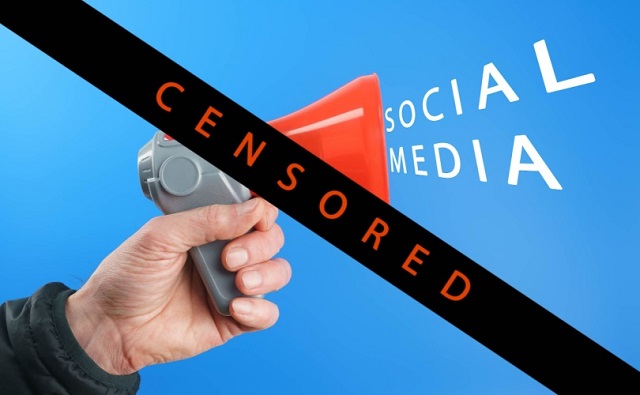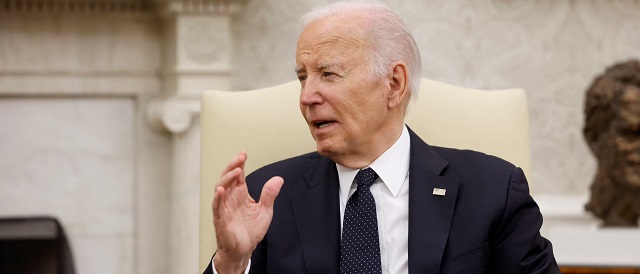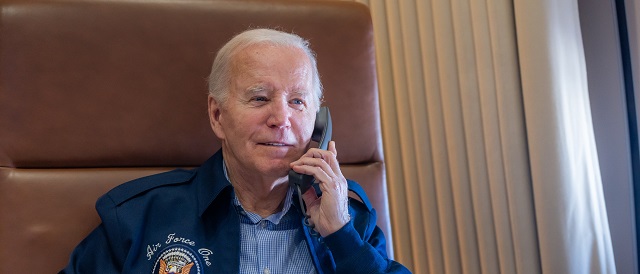Censorship Industrial Complex
Trudeau government ‘gaslighting’ critics of Online Harms Act, legal expert warns

From LifeSiteNews
Dr. Michael Geist pointed out that Bill C-63 gives a digital safety commission an astonishing array of powers with limited oversight.
One of Canada’s top legal pundits warned that the federal government of Prime Minister Justin Trudeau is “ready” to “gaslight” opponents of a new bill that could lead to jail time for vaguely defined online “hate speech” infractions.
In recent an opinion piece critical of Bill C-63, which is the Online Harms Act that was introduced in the House of Commons on February 26, law professor Dr. Michael Geist said that the text of the bill is “unmistakable” in how it will affect Canadians’ online freedoms.
Geist noted that the new bill will allow a new digital safety commission to conduct “secret commission hearings” against those found to have violated the new law.
“The poorly conceived Digital Safety Commission lacks even basic rules of evidence, can conduct secret hearings, and has been granted an astonishing array of powers with limited oversight. This isn’t a fabrication,” Geist wrote.
He observed specifically how Section 87 of the bill “literally” says “the Commission is not bound by any legal or technical rules of evidence.”
The Liberals under Trudeau claim Bill C-63 will target certain cases of internet content removal, notably those involving child sexual abuse and pornography.
The reality is that the federal government under Trudeau has gone all in on radical transgender ideology, including the so-called “transitioning” of minors, while at the same time introducing laws that on the surface appear to be about helping children.
As for Geist, he noted that when it comes to Bill C-63, the “most obvious solution” to amend the bill “is to cut out the Criminal Code and Human Rights Act provisions, which have nothing to do with establishing Internet platform liability for online harms.”
“Instead, the government seems ready yet again to gaslight its critics and claim that they have it all wrong,” Geist said. “But the text of the law is unmistakable and the initial refusal to address the concerns is a mistake that, if it persists, risks sinking the entire bill.”
Bill C-63 was introduced by Justice Minister Arif Virani and then immediately blasted by constitutional experts as troublesome.
Bill C-63 will modify existing laws, amending the Criminal Code as well as the Canadian Human Rights Act, in what the Liberals claim will target certain cases of internet content removal, notably those involving child sexual abuse and pornography.
One of Canada’s foremost constitutional rights groups, the Justice Centre for Constitutional Freedoms (JCCF), warned that the proposed “Online Harms Act” is a serious threat to freedom of “expression” and could lead to “preemptive punishment for crimes not committed.”
Geist observed that the Trudeau government with Bill C-63 “is ready to run back the same playbook of gaslighting and denials that plagued” as it did with its other internet censorship Bills C-11 and C-18.
“Those bills, which addressed Internet streaming and news, faced widespread criticism over potential regulation of user content and the prospect of blocked news links on major Internet platforms. Rather than engage in a policy process that took the criticism seriously, the government ignored digital creators (including disrespecting indigenous creators) and dismissed the risks of Bill C-18 as a bluff,” Geist wrote.
“The results of that strategy are well-known: Bill C-11 required a policy direction fix and is mired in a years-long regulatory process at the CRTC and news links have been blocked for months on Meta as the list of Canadian media bankruptcies and closures mount.”
Geist observed that Bill C-63 had “offered the chance for a fresh start,” but instead there “were red flags,” particularly with respect to the “Digital Safety Commission charged with enforcing the law and with the inclusion of Criminal Code and Human Rights Act provisions with overbroad penalties and the potential to weaponize speech complaints.”
“The hope – based on the more collaborative approach used to develop the law – was that there would be a ‘genuine welcoming of constructive criticism rather than the discouraging, hostile processes of recent years,’” Geist wrote.
“Two weeks in that hope is rapidly disappearing,” he added.
Geist observed that Bill C-63’s changes to the Human Rights Act “absolutely open the door to the weaponization of complaints for communication of hate speech online that ‘is likely to foment detestation or vilification of an individual or group of individuals on the basis of a prohibited ground of discrimination.’”
Indeed, the bill, as per Section 13.1, would allow for those found in violation to face penalties up to $20,000 for the complainant as well as up to $50,000 to the government (Section 53.1).
LifeSiteNews has previously reported that many, including prominent Canadians who are not known to be conservative such as author Margaret Atwood, oppose Bill C-63. Additionally, billionaire Elon Musk and Jordan Peterson have been critical of Bill C-63.
Marty Moore, litigation director for the JCCF-funded Charter Advocates Canada, previously told LifeSiteNews that Bill C-63 will allow a new digital safety commission to conduct “secret commission hearings” against those found to have violated the new law, raising “serious concerns for the freedom of expression” of Canadians online.
The JCCF launched a petition, which can be signed here, calling on Trudeau to “stop” the Online Harms Act.
Censorship Industrial Complex
Internet censorship laws lead a majority of Canadians to believe free speech is threatened: poll

From LifeSiteNews
In light of the barrage of new internet censorship laws being passed or brought forth by the federal government of Prime Minister Justin Trudeau, a new survey revealed that the majority of Canadians feel their freedom of speech is under attack.
According to results from a Leger survey conducted April 26-28 that sampled responses from 1,610 Canadians, 57 percent think their freedom of speech is being threatened, with 36 percent not believing this to be true.
Not surprisingly, those with conservative voting intentions, about 76 percent, were the most likely to feel that their free speech is under attack, with 70 percent of the same group as well as those over 55, feeling that Canada is not as free as before.
The survey results also show that 62 percent of Canadians think it is “tougher to voice their opinion in their country, while 27% think it is easier.”
“Conservative voters (70%) and Canadians aged 55 or older (70%) are more likely to think that it is tougher now to express their opinion,” Leger noted in its survey.
Not surprisingly, Liberal voters were the most supportive of placing limits on free speech, with 64 percent agreeing with the following: “There should be limits on freedom of speech to ensure that things such as hate speech, speeches preaching a form of intolerance, or speeches against democracy be prevented from reaching the public.”
The survey also revealed that about one of four conservative voters believe that their views are not socially acceptable.
Sixty percent of conservative voters said that free speech should never be limited in any manner and that one should be able to express their opinions publicly without issue.
Regarding their reasons for free speech being under attack, 11 percent blamed politicians causing more hate, with eight percent saying “right-wing” extremists were to blame, with seven percent blaming woke-minded thinking as the issue. Twenty-nine percent of Canadians felt that a growing lack of respect is to blame, and 13 percent thought it is due to “a degradation of the moral fibre in the country.”
A bit concerningly, only six of 10 Canadians have confidence that the next federal election, scheduled for 2025, will be “free and fair,” with 29 percent saying outright they are “not confident.”
When it comes to internet censorship laws, the most recent one introduced in the House of Commons is a federal government bill that could lead to large fines or jail time for vaguely defined online “hate speech” infractions under Liberal Minster Attorney General Arif Virani’s Bill C-63, or Online Harms Act.
LifeSiteNews recently reported how well-known Canadian psychologist Jordan Peterson and Queen’s University law professor Bruce Pardy blasted Trudeau and his government over Bill C-63.
Peterson noted that in his view, Bill C-63 is “designed … to produce a more general regime for online policing.”
“To me, that’s what it looks like,” he said.
Two other Trudeau bills dealing with freedom on the internet have become law, the first being Bill C-11 or the Online Streaming Act that mandates Canada’s broadcast regulator, the Canadian Radio-television and Telecommunications Commission (CRTC), oversee regulating online content on platforms such as YouTube and Netflix to ensure that such platforms are promoting content in accordance with a variety of its guidelines.
Trudeau’s other internet censorship law, the Online News Act, was passed by the Senate in June 2023.
The law mandates that Big Tech companies pay to publish Canadian content on their platforms. As a result, Meta, the parent company of Facebook and Instagram, blocked all access to news content in Canada. Google has promised to do the same rather than pay the fees laid out in the new legislation.
Critics of recent laws such as tech mogul Elon Musk have said it shows “Trudeau is trying to crush free speech in Canada.”
Censorship Industrial Complex
Biden Agencies Have Resumed Censorship Collaboration With Big Tech, Dem Senate Intel Chair Says

 From the Daily Caller News Foundation
From the Daily Caller News Foundation
By JASON COHEN
Agencies in President Joe Biden’s administration have resumed their perceived disinformation censorship collaboration with social media companies, Senate Intelligence Committee Chairman Mark Warner told reporters at a recent security conference, Nextgov/FCW reported.
The administration stopped “misinformation” censorship collaboration with social media platforms after a July Missouri v. Biden ruling to prevent federal agencies from coordinating with social media companies, but recently restarted this work, Warner # reporters, according to Nextgov. He said the cooperation resumed as the Supreme Court heard oral arguments in the case, now called Murthy v. Missouri, in March, where multiple justices indicated they supported the Biden administration’s viewpoint that it has the right to work with platforms to combat what it believes is harmful content.
Democrat Senator Mark Warner says there’s a “voluntary agreement about disinformation and misinformation in elections” between “all 20 of the major social media companies” pic.twitter.com/YmIyAuJBrw
— RNC Research (@RNCResearch) April 21, 2024
“There seemed to be a lot of sympathy that the government ought to have at least voluntary communications with [the companies],” Warner said, according to Nextgoc. He also reportedly called on the Biden administration to take strong action against any foreign countries that try to interfere in the 2024 election.
The agencies include the Department of Homeland Security’s Cybersecurity and Infrastructure Security Agency (CISA) and the Federal Bureau of Investigation (FBI), according to NextGov.
“If the bad guy started to launch AI-driven tools that would threaten election officials in key communities, that clearly falls into the foreign interference category,” he added.
A district court judge issued an injunction in July preventing certain officials in agencies from the Department of Health and Human Services (HHS) to the FBI from communicating with social media platforms to censor speech, characterizing the government conduct exposed by the plaintiffs in the case as arguably “the most massive attack against free speech in United States’ history.”
Justices Sonia Sotomayor, Elena Kagan and Ketanji Brown Jackson, expressed concern during March oral arguments about restricting the government’s ability to persuade companies to take action when necessary, such as when terrorists disseminate speech on a platform.
The justices also questioned whether the plaintiffs could prove their platforms censored their speech as a direct result of the government.
Facebook executives believed they were engaged in a “knife fight” with Biden’s White House on COVID-19 censorship, according to a recent House Judiciary Committee report. Biden accused the platform of “killing people” in July 2021 for not censoring so-called COVID-19 misinformation, and unearthed WhatsApp messages between Facebook executives revealed that they were unhappy about the president’s remarks.
Warner, the White House and the FBI did not immediately respond to the Daily Caller News Foundation’s request for comment. CISA declined to comment, but notified the DCNF about an Election Security hearing in the coming weeks with the agency’s Director, Jen Easterly.
-

 John Stossel2 days ago
John Stossel2 days agoThe Swamp Survived: Why Trump Failed to “Drain the Swamp”
-

 Energy2 days ago
Energy2 days agoU.S. EPA Unveils Carbon Dioxide Regulations That Could End Coal and Natural Gas Power Generation
-

 Environment2 days ago
Environment2 days agoScientific Report Pours Cold Water On Major Talking Point Of Climate Activists
-

 Automotive1 day ago
Automotive1 day agoNew Analysis Shows Just How Bad Electric Trucks Are For Business
-

 Education1 day ago
Education1 day agoSchools shouldn’t sacrifice student performance to vague notions of ‘equity’
-

 Alberta Sheriffs Branch2 days ago
Alberta Sheriffs Branch2 days agoCrown appeal against acquitted peaceful protestor Evan Blackman back in court June 19
-

 Opinion1 day ago
Opinion1 day agoBoy Scouts of America changes name to ‘Scouting America’ to be ‘more inclusive’
-

 conflict2 days ago
conflict2 days agoAmerica Is Really Bad At Foreign Interventions. Why Does Biden Think Ukraine Will Be Any Different?






